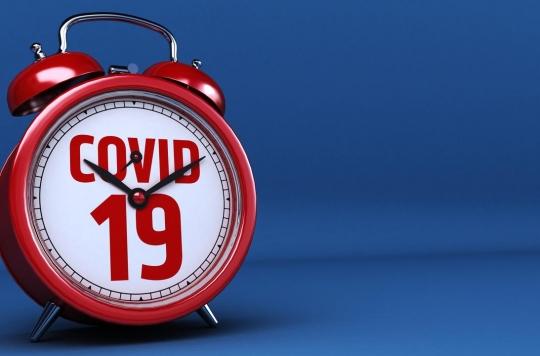This Wednesday, January 13, the government is meeting again around the health defense council to prepare tomorrow’s announcements. Among the tracks mentioned, that of the generalization of the curfew at 6 p.m. throughout the territory. A measure that is debated among public health experts.

- The effectiveness of the 6 p.m. curfew in the fight against Covid-19 is debated within the French scientific community.
- In favor of the curfew, its effectiveness in Guyana. To its disadvantage, the lack of serious study on its impact.
Since Tuesday January 12, a total of 25 departments have been placed under curfew from 6 p.m. to 6 a.m. To reduce the number of contaminations and deal with the British and South African variants of Covid-19, one of the government’s avenues would be to generalize this measure to the whole of the territory.
For the
The argument that leans the most in favor of the curfew is undoubtedly the example of Guyana. According to a study published Monday, October 12, 2020 by a group of researchers under the aegis of the Pasteur Institute, its introduction last March in this overseas department would have made it possible to reduce the reproduction rate of Covid-19, going from 1.7 to 1.1. “It’s a significant reduction that made it possible to break the epidemic wave. The transmission rate changed when the control measures were put in place. 10 to 15 days later, hospitalizations reached their peak”, analyzes Simon Cauchemez, director of research at the Pasteur Institute. For him, “All of this suggests that these measures have had a significant impact.”
In fact, the curfew reduces the number of social interactions in the evening, and therefore potentially the risk of contaminating or becoming infected with Covid-19. “Anything that can reduce social interactions is effective against the coronavirus, including the British and South African variants. In this sense, the curfew, like confinement, is an interesting measure. New cases do not fall of the sky”, analyzes infectious disease specialist Jean-Paul Stahl.
In addition, the curfew is less harmful than generalized confinement for the mental health of the French, already severely degraded in 2020. “Psychologically, I experience the curfew less badly than the confinement, because I feel much less suffocated”, testifies martine, 53 years old. “There are also more social interactions, thanks to the maintenance of the opening of the shops. For me, who lives alone and who telecommutes three days a week, that changes everything”, she says.
Cons
Nevertheless, the opponents of the curfew point out that this measure brings together French people in transport and stores at the same time, which greatly increases the risk of transmission of Covid-19, and potentially cancels out the benefits of the reduction in interactions. evening socials. “Regarding stores, this is an argument that does not hold water. Because the barrier measures will continue to apply, curfew or no curfew, as will the limitation of the number of customers in the sales areas” , says Professor Jean-Paul Stahl.
The other argument against the curfew is that, except in Guyana, no study scientifically demonstrates its effectiveness. “We have no figures that can allow us to know clearly what the effects of the advanced curfew are”, regrets on France Info Emmanuel Rusch, epidemiologist, knowing that the impact of the British variant makes it even more difficult to assess the effectiveness of such a measure, just like the behavior of the French during the end of year celebrations. Moreover, the first figures concerning the departments placed under curfew at 6 p.m. say everything and its opposite: stabilization of the evolution of the incidence rate in the Ardennes, but continuous increase of this same rate in Haute-Marne…
As a result, public health experts disagree about the effects of the curfew on Covid-19. While epidemiologist Yves Buisson greeted on RMC “a proven solution”, his colleague Catherine Hill considers in the columns of Parisian “that a curfew brought forward to 6 p.m. will not change much. It will annoy people and will not reduce the number of people who cross paths and who contaminate each other much”.
Finally, as evidenced by numerous complaints, the introduction of a curfew at 6 p.m. would prevent many French people from playing sports after their working day. Physical activity being one of the essential keys to good organic and mental health, this argument should also be considered.
.















